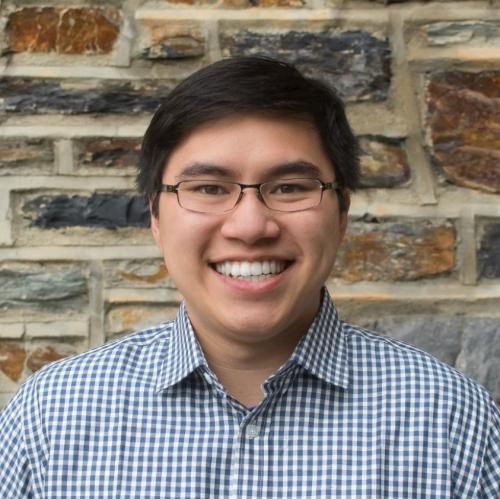
Blog
Recognizing the “Me” in Team: A Journey of Self-Awareness through Teamwork in the Emerging Leaders Institute

While we’re proud of the work we accomplished, in this post, we wanted to share how the team project helped to guide our individual journeys toward personal growth in leadership. ELI helped us to discover and value our individual leadership qualities. It also helped us identify character traits that could pose a challenge to effective communication and leadership in a group dynamic. You’ll hear from the four of us individually about how this amazing program has had a long-lasting impact on our personal development.

Personally, I wanted to wield my gifts of optimism and communication to encourage a positive group dynamic. I am normally the first person to jump in with ideas and volunteer. This has led to a tendency to overwhelm myself with responsibility and doesn’t always allow others to shine. I needed to learn how to listen, delegate and offer my services when they made the most sense. We operated as a team in every sense of the word, and I felt very supported as each member stepped up or stepped back to allow each person a chance to contribute and feel valued.
—Asiya

As a result, everyone felt heard and engaged, which I believe led to a great team dynamic that I haven’t seen in other team projects.
Personally, I believe we all accomplished our personal growth goals set at the beginning of this journey. As part of this team project I sought to improve my task delegation and active listening skills, and I must say, having teammates to help me develop these qualities and keep me accountable made the process very fulfilling. I believe this experience will help me lead more effectively in future roles either directly or indirectly.
—Eduardo

Our W.A.K.E. team was truly full of this diversity, where I found all the support to understand myself and others. I am thankful for having such an amazing opportunity of sharing with wonderful people. I never imagined my efforts were so valued even when they seemed to be just basic blocks to build on our project.
The most enriching experience I can recognize from this program, besides the uniqueness of each of my teammates, is the particular focus to work on self-awareness. By knowing how I react when facing daily challenges, I can develop tools that help me to take control of my emotions and thus perform at the best of my abilities for others. I was prompted to discover my leadership qualities by all the great people involved, from the facilitators to my personal coach; I came to have a broader and clearer picture of what kind of leader I am called to be. Particularly, I was challenged to test my communication skills when leading meetings and connecting ideas. None of my colleagues should miss the opportunity to grow as individuals through the amazing ELI program that the Duke Graduate School offers. It’s simply remarkable!
—Wil

Early on, we learned of our own strengths and weaknesses while establishing fruitful team expectations and norms. This led to candid conversations with my team of our self-reflections and personal development goals. These conversations helped each of us to identify aspects of our project as growth opportunities for each other. For example, I needed to practice intentionally shutting up, listening actively and taking time to reflect. The added listening and reflections allowed me to delegate more often while offering to lead in areas where I can best contribute. Throughout the project, we developed a culture where I felt valued, heard and supported, balancing our focus on the project itself and the growth of each team member. This experience definitely sets a very high bar for future team projects. I can’t wait to emulate the same growth culture and develop my leadership skills in future teams!
—Kevin
Author

Asiya Gusa, Ph.D.
Postdoctoral scholar, Molecular Genetics and Microbiology
Asiya Gusa, Ph.D., is a postdoctoral scholar in the Molecular Genetics and Microbiology (MGM) program in the Duke School of Medicine where she studies genetics in the human fungal pathogen Cryptococcus. She has always been interested in how disease-causing microorganisms respond to environmental signals. Asiya received her graduate degree from Emory University in Atlanta, GA and undergraduate degree in Microbiology from Miami University in Oxford, OH.

Eduardo Coronado
Recent master's graduate, Statistical Science
Eduardo Coronado received his M.Sc. in Statistical Science in May 2020. He is interested in statistical modeling, machine learning, AI applications in healthcare, and business development/analytics. Prior to Duke he worked at Arc Bio, a small healthcare company based in Boston that develops novel infectious disease diagnostics. There he co-invented a graph-based genomic analysis tool capable of processing genetic data files (>200Gb) within a day compared to the standard multi-day processing time.

Wilderson Medina
Ph.D. student, Environment
Wilderson Medina holds a B.Sc. in Biology from UPTC, Colombia, and now is a third-year Ph.D. student the Nicholas School of the Environment (NSOE). His research focuses on analyzing the geographical and ecological factors influencing species distribution and prioritizing areas in the Tropics for conservation of endangered species. Before Duke, he was working to increase biodiversity knowledge in his country and supporting environmental projects with local communities.

Kevin Erning
Ph.D. student, Biomedical Engineering
Kevin Erning is a third-year Ph.D. student in the Biomedical Engineering Department. His current research focuses on engineering therapeutic biomaterials for brain repair after stroke. He received a B.S. in Chemical Engineering and a B.S. in Molecular Cellular Biology from the University of Illinois Urbana-Champaign. Prior to Duke, Kevin worked as a process modeling engineer at Archer Daniels Midland to scale up a novel bio-based plastic manufacturing process.